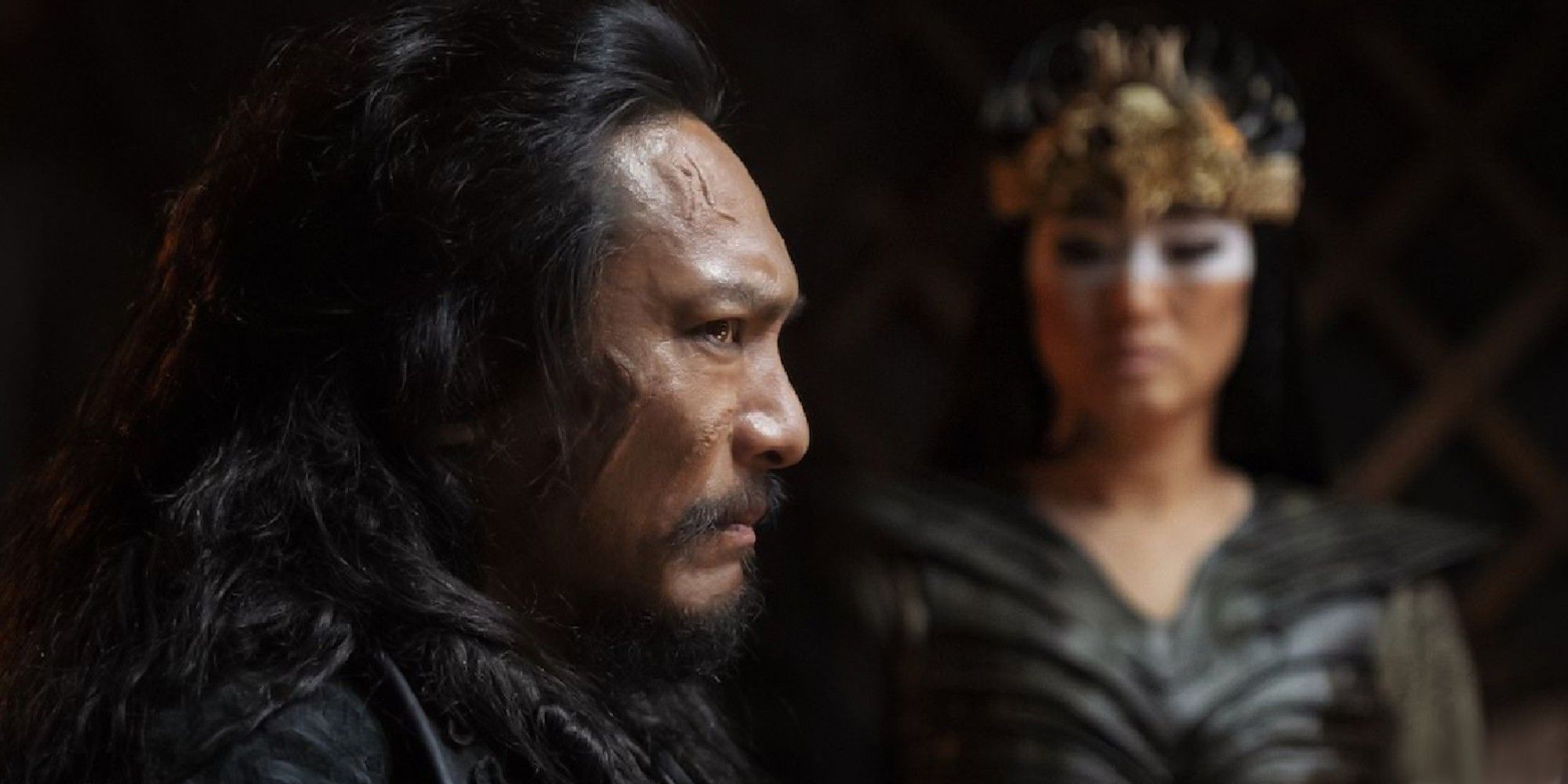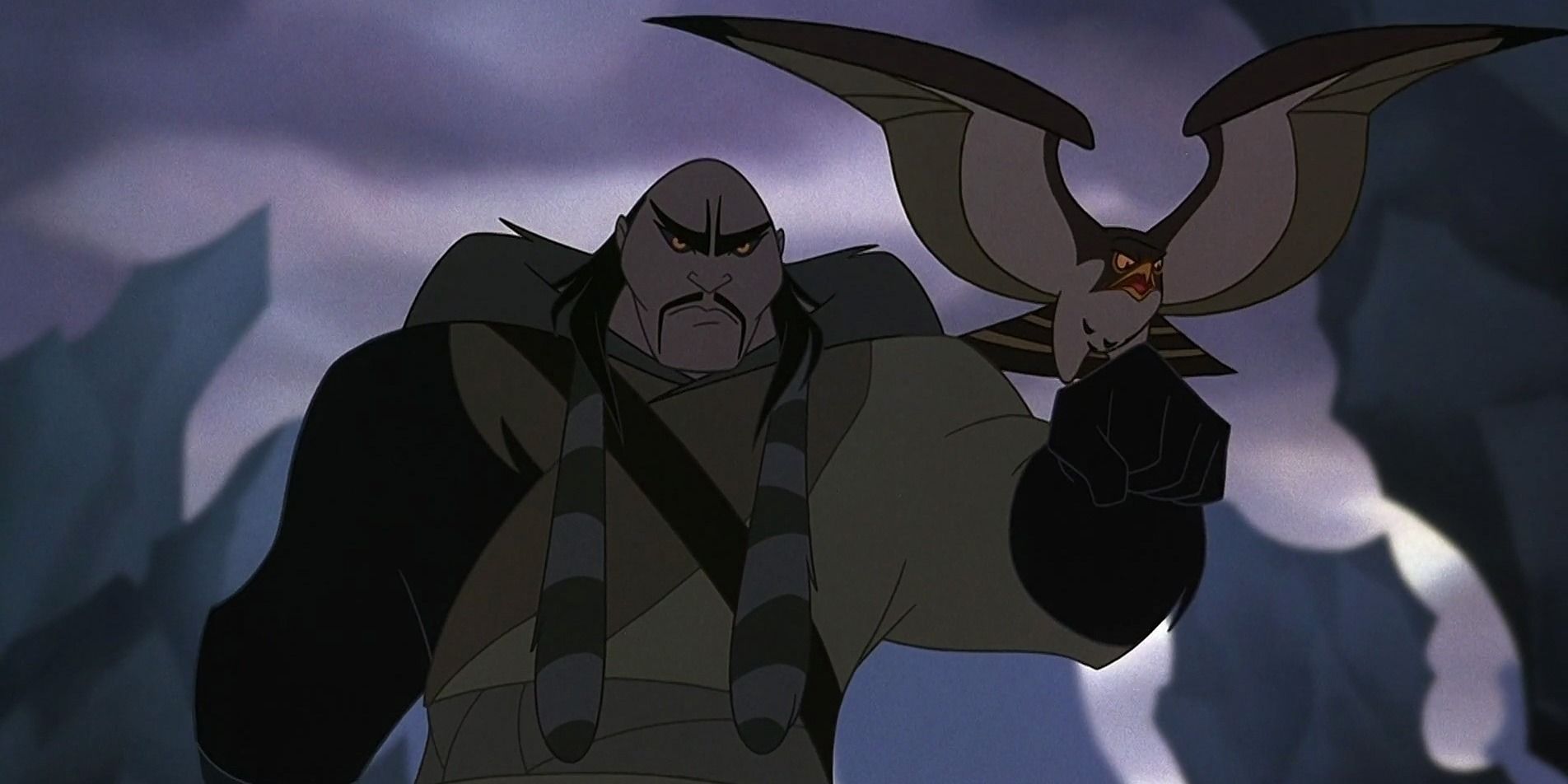Mulan 2020 was partially inspired by the 1998 animated film of the same name but replaces the villain Shan Yu (Miguel Ferrer) with a brand new baddie named Bori Khan (Jason Scott Lee). In general, both characters serve their purpose well, however, the live-action villain feels more effective, primarily because of the modern update's dark realism.
Directed by Niki Caro, Mulan 2020 mostly stays true to the original Disney premise. Yifei Liu headlines an all-Chinese cast as Mulan, a young warrior who disguises herself as a man and takes her father's place in the Imperial Army. Meanwhile, the Rouran warrior Bori Khan plans to avenge his father's death with the assistance of a witch named Xianniang (Gong Li). In a minor twist, Xianniang connects with Mulan during her journey of redemption and offers some meaningful advice; the young girl has good intentions but must be true to herself. In supporting roles, Mulan 2020 co-stars Donnie Yen as Commander Tung and Jet Li as The Emperor of China.
Mulan 2020 establishes Bori Khan as the villain right away, whereas the animated film spends the opening act focusing on the title character. With Caro's film, Disney takes a more realistic approach by establishing the stakes for all parties involved. Incidentally, Bori Khan feels like more of a threat than Shan Yu because of the inherent realism. There's a clear sense of danger, as the 2020 villain is rugged and ready to lead a revolution. In the 1998 film, Shan Yu simply doesn't have enough screen time, or bad guy moments, to emotionally impact audiences in general, even if he is indeed entertaining. For the live-action remake, he was replaced, and it was a strong move.
Performance-wise, Ferrer was seemingly cast because of his distinct voice and industry legacy, as the late actor was the son of José Ferrer and musician Rosemary Clooney. With Mulan, Ferrer delivers a traditional Disney performance that's purely melodramatic; his villain is physically huge and speaks with a booming voice and the vaguely supernatural edge suggested by the fact that Shan Yu has hawk-like black and yellow eyes. In contrast, Bori Khan in the 2020 film is somewhat relatable because he's not framed as some type of "other." The actor, Lee, plays up his performance at the appropriate moments but doesn't go overboard with villain cliches. He is also more sympathetic, offering his plan to take on the Emperor because of the death of his father.
Like Mulan, and like his witch side-kick Xianniang - whose evil is inspired solely by the fact that she was ostracized for her "difference" (her magic being considered taboo) - Bori Khan is invested primarily in his legacy and honoring his name and family. He and his allies were left behind when the Emperor built his empire, whether as his enemies or those whose land he plundered for his own expanding borders. That is a far more nuanced position than Shan Yu simply wanting to invade as an expression of his lust for power.
In Mulan 1998, Shan Yu is a gigantic character who survives an avalanche and says things like "I'm here to play this game." Ferrer's big performance aligns with the grandiose production design, along with the musical numbers and emotional character moments. For Caro's modern update, the live-action production calls for tonal balance and realism. Just as The Emperor (portrayed by Jet Li) seems experienced and wise, Bori Khan similarly feels the same way, only he's lived a much different life thanks to being the loser of the Imperial wars. Because Bori Khan is a believable Mulan 2020 villain, the title character's journey subsequently becomes more impactful.


